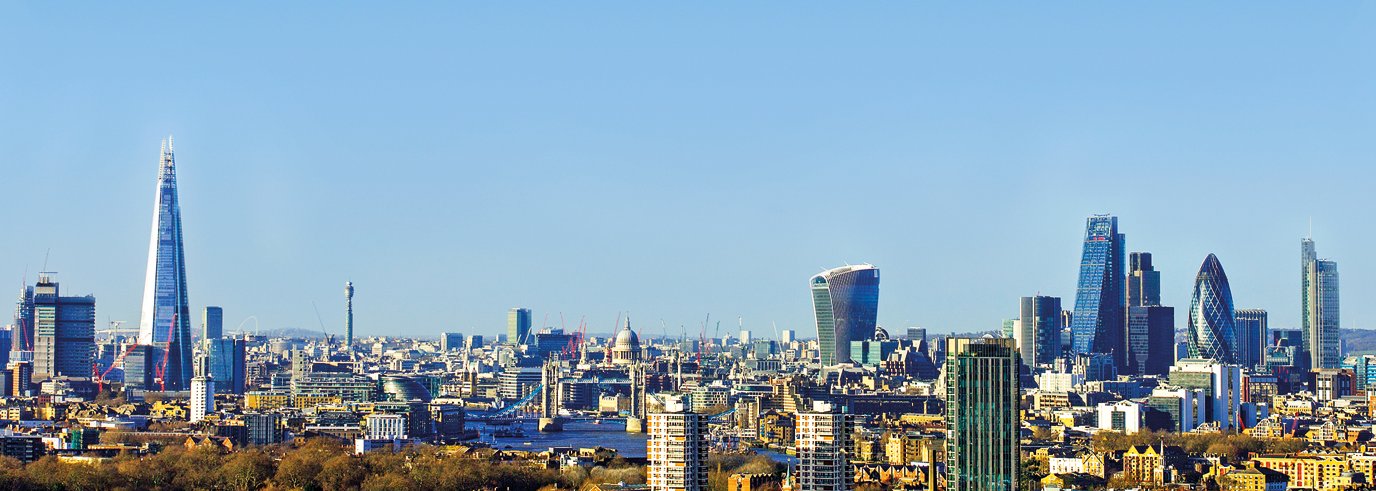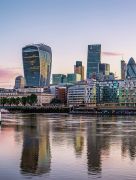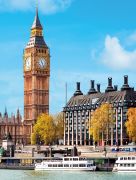
London: The epitome of a global city
People come to London for so many reasons, it’s an easy place to live and do business in.
7 July, 2023
“There’s nowhere else like London. Nothing at all, anywhere.” Vivienne Westwood’s words speak of London’s irrepressible ability to move forward when everywhere else may appear somewhat lost. London has had many centuries’ practice at recovering from setbacks, be they natural or man-made disasters. Its resulting durability means the Capital has been at the heart of progressive thinking, financial dealings, scientific discovery, literary, cultural and artistic expertise for longer than most cities around the world.
But it is not a city that rests on its laurels. It thrives because it does the opposite. The UK’s attraction to the global stage has long been its reliability for the rule of law and an outstanding tradition in academic pursuits. It is now home to 4,500 world-class researchers and many renowned medical and clinical trial centres. Over 40 Higher Education Institutes underpin London’s attraction to scholars across the world.
London is also renowned as a place to do business with a third of European HQs of Global Fortune 500 companies based in the City. It is also a repository of international money - over 40% of the world's foreign equities are traded here and over 30% of the world's currency exchanges take place here, more than New York and Tokyo combined. Importantly 80% of London’s business is international – a feature not unrelated to the world’s respect for English rule of law. International commercial disputes are often resolved in London.
Perhaps more readily obvious to those of us who live here is London’s geographical advantage as a transport hub to the world’s destinations. London's airports offer more than 100,000 flights per month. It is a centre through which not only many people travel, but many others stay. Londoners speak over 300 languages between them and belong to a large collection of different faiths.

London’s ecosystem provides access to growth capital, policy makers, infrastructure, world class universities and talent, all in one city.
In January of this year, research by peer to peer investment platform easyMoney stated that London sits within the top four most sought after global property markets. The city’s attractiveness to international buyers has been unaltered by the pandemic and, importantly, Brexit.
Such is the power of this international pull that to capitalise on it, an all-party parliamentary group has been formed to solidify London’s status as a global city. The group’s inaugural report defines a global city as one where there is a “strong relative dependence upon it from across the world”.
“London’s ecosystem provides access to growth capital, policy makers, infrastructure, world class universities and talent, all in one city,” it notes.
The report goes on to cite a paper written by the Centre for London which posits that London will remain in the global top tier of world cities.
“This is because the combination of assets it already possesses are not easy to replicate, and ‘include super-agglomeration, deep talent pools, institutional functions and relationships, established leadership in finance, media and higher education, diversified technology strengths, and a record of openness to ideas and population’.”
What does all this mean for the people who live in London? The country may be facing a tough couple of years with many central bankers expecting a prolonged period of stagflation but its effects will be felt very differently in London compared to the rest of the country because of its diverse population and abundant intellectual, cultural, and financial resources.
Sherard James, Head of Corporate Services at KFH, explains. “It’s worth singling out the UK Capital from the rest of our domestic property market. A significant slice of its appeal is contingent on a completely different profiles of buyers and tenants. London’s appeal does not really exist in any other city in the UK, highlighting its commonality with other global metropolises.”

London’s appeal does not really exist in any other city in the UK, highlighting its commonality with other global metropolises.
From the super-prime mansions to Victorian terraces and flats, the various constituencies of the London market interact in subtle ways. When the super-prime market performs well there is a knock-on effect to other areas. It might not be instantaneous but it creates demand in the broader market, which ultimately can spill out in to the other zones. Despite the dual economic pressures of continuing high inflation and 12 consecutive base rate rises, Rightmove reported that the Capital saw a 2.8 per cent month-on-month rise in prices in May of this year, taking the average London asking price to £696,500.
London has maintained its place as a top global city along with New York, Paris and Tokyo. Remote work has improved liveability by reducing commutes and its economy has pulled even further away. It is not all because London is great, (Hong Kong and Moscow have faded under authoritarian regimes) but London is delivering what it does well and is addressing the other key issue it faces – namely delivering cleaner air and climate change management measures better than most others.
Initiatives are underway in many areas, including the controversial ULEZ expansion and twelve Low Emission Bus Zones across the Capital. Ultimately this plethora of initiatives is aimed at reducing Londoners’ exposure to harmful pollution at priority locations like schools and tackling health inequality.
There is clear picture of what the city should look like and some very meaningful action to deliver that vision. With unmatched human, market and digital connectivity, London looks set to continue its role as a global Capital.

Here to help
Looking for advice on the London property market?